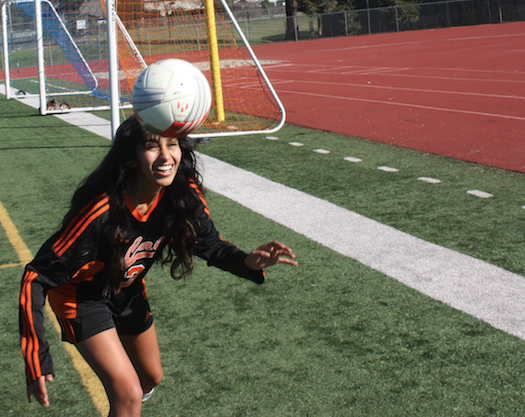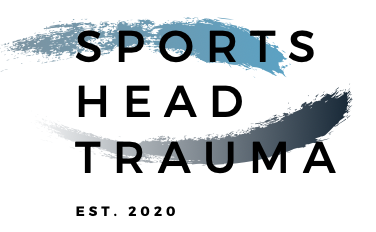
Women’s soccer has the second highest concussion rate after American football. A recent study published in the Journal of Neurotrauma by Radhika Balagopal et al. examines the short term effects of repetitive head impacts (RHI) on the brains of adolescent female soccer players. “Our findings show a complex time course of effects of RHIs on both sensorimotor and cognitive performance in athletes, with with exposure to RHIs associated with no change or immediate benefits and then deficits by 24 h.”
The study used tablet based tasks to identify if heading a soccer ball would affect response times, both immediately and in a short term time course. The athletes were tested through two consecutive seasons, before and after workout with heading (immediate effect), as well as 24 hours after (24 h effect). The results show a decrease in ProPoint and AntiPoint reaction times immediately after a workout, regardless of the number of RHIs. However, increasing RHIs during workouts increased RTs 24 hours later when tested again in both tasks. Furthermore, an increase in AntiPoint RTs were observed in athletes who had “increasing season average RHIs.”
“Soccer played a major part in shaping the research and work I did throughout college. In high school, I saw teammates getting concussions and head injuries that really affected every part of their lives. They would hit their head, be unable to stand up, but then in ten minutes be put back into the game without any protocol. I knew that if there was research being done on the effect of heading a soccer ball on the brain, I wanted to be a part of it.” -Radhika Balagopal
Click the link below for more information about the original study.
Radhika Balagopal, Michelle Won, Saumil S. Patel, Alice Z. Chuang, and Anne B. Sereno.Journal of Neurotrauma.Dec 2020.2664-2673. https://doi.org/10.1089/neu.2020.7085
Disclaimer: The information provided by Sports Head Trauma is solely for educational purposes and raising awareness of mTBI & TBI. Sports Head Trauma does not provide medical advice, and the information from this website should not be used to diagnose, manage, or treat a head injury. If you have sustained a head injury or think you have a concussion, seek medical help immediately. If you need medical advice, diagnosis, or treatment information, please talk to a healthcare professional or a physician. This website is not meant to create a physician-patient relationship, or any type of confidential relationship. The information provided by Sports Head Trauma should not be substituted for medical advice, diagnosis, or treatment information from a healthcare provider, as the sole purpose of the website is for informational purposes. In the event of an emergency, always speak to a medical professional or call 911.
